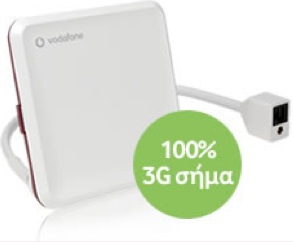Vodafone Greece launches free public access location-based small cell service
Operators are preparing to deploy million of small cells per year over the next five years as new business models begin to appear, according to analysts.
The Small Cell Forum’s Market Status Report, produced this quarter by Informa TM analyst Dimitris Mavrakis, has reported that there are now six million small cells in service across 46 operator femtocell deployments globally, with “several” operators now reporting deployments with hundreds of thousands of femtocells.
Of the 46 deployments, 26 of them are consumer only, six enterprise only and eight consumer and enterprise. There are five public access femtocell deployments, and one rural deployment (from Softbank, using satellite backhaul). That adds up to nine of the top 10 operator groups by revenue offering services, Informa TM said.
Of the six million cells now deployed, Sprint has announced it has deployed over a million, with Softbank and SFR saying they have over 100,000 units deployed. Vodafone UK says it has “hundreds of thousands” in the UK. AT&T has not reported figures officially but estimates are that it also has nearly a million femtocells on its network.
The analyst is predicting that there will be 91 million small cells in the market by the end of 2016. ARCchart has forecast there will be five million small cells shipping annually by 2017. ARCchart said that daily traffic handled by carrier networks worldwide will ramp at a CAGR of nearly 31% over the next five years, driving the need for capacity relief provided by small cells.
Informa said in a survey conducted for the report that 55% of operator respondents were most interested in public access deployments over the next 12 months followed by enterprise rollouts (35%). Almost half (49%) of operators said their greatest concern surrounding outdoor metro deployments are the planning issues (suitable sites, power) followed by backhaul challenges (35%).
Overall, 98% of those operators polled said small cells are essential for the future of their networks.
Mavrakis wrote that a “major trend” is now for operators to offer free femtocells, something Softbank, Vodafone, Cosmote and SFR are all doing.
In Greece, Vodafone has now deployed a public-area small-cell service, offering 34G and WiFi accessvia a service, named Free 3G Hotspot, deployed in 200 Flocafe and Goody’s outlets in Greece. Vodafone covers the indoor space of the restaurants, and then customers attaching to the cell they are sent an SMS alerting them to the free data services. The service could, in time, be used to to provide new revenue opportunites through advertising or other location based services, Mavrakis wrote.
Another recent market move in femtocells has been the emergence of the Small Cell as a Service (SCaaS) model in which third parties roll out a small-cell network and then rent it to several operators. Virgin Media is trialing LTE small cells in the UK ahead of launching its Small Cell as a Service offering and Colt Telecom announced it is already in trials with a major European operator. Two furthercompanies – Cloudberry Mobile and ClearSky – have launched their own offerings in Europe and the US, respectively.




